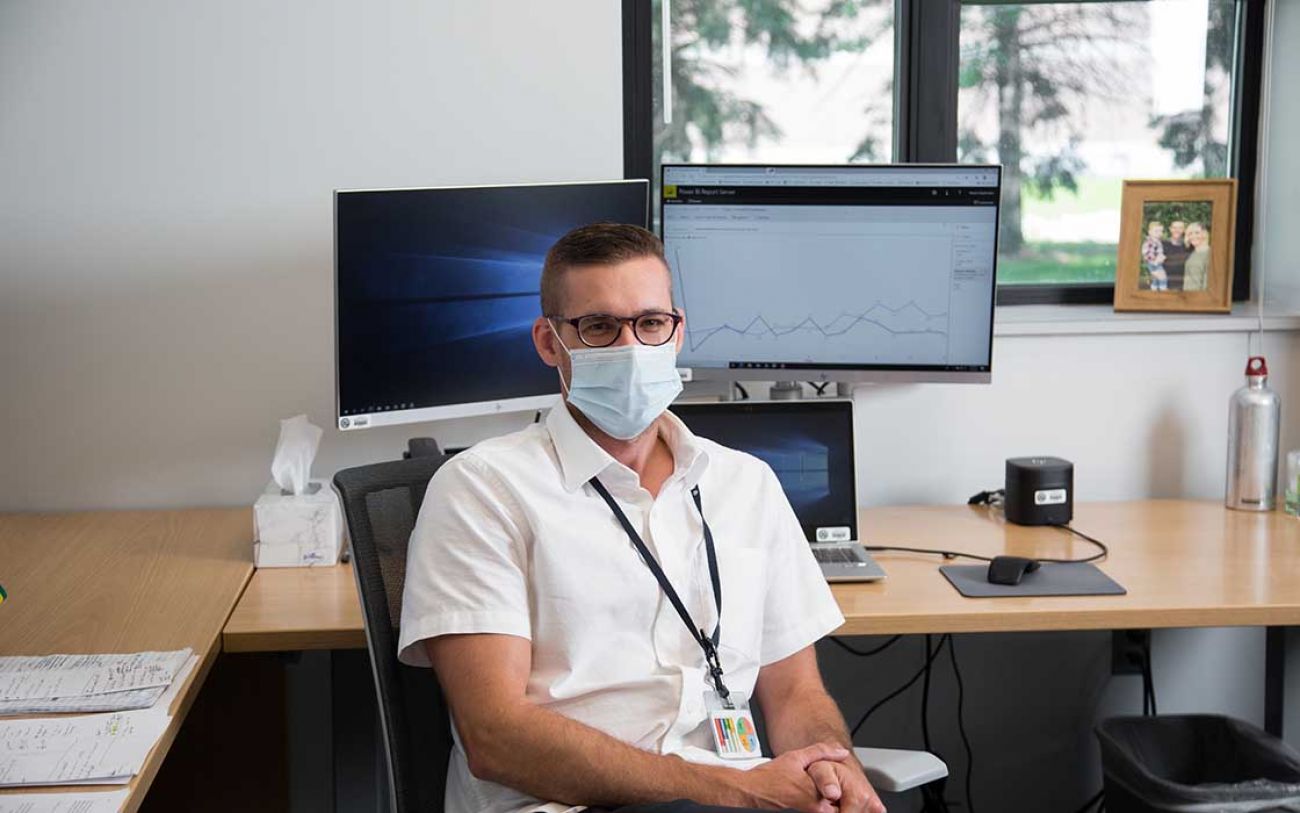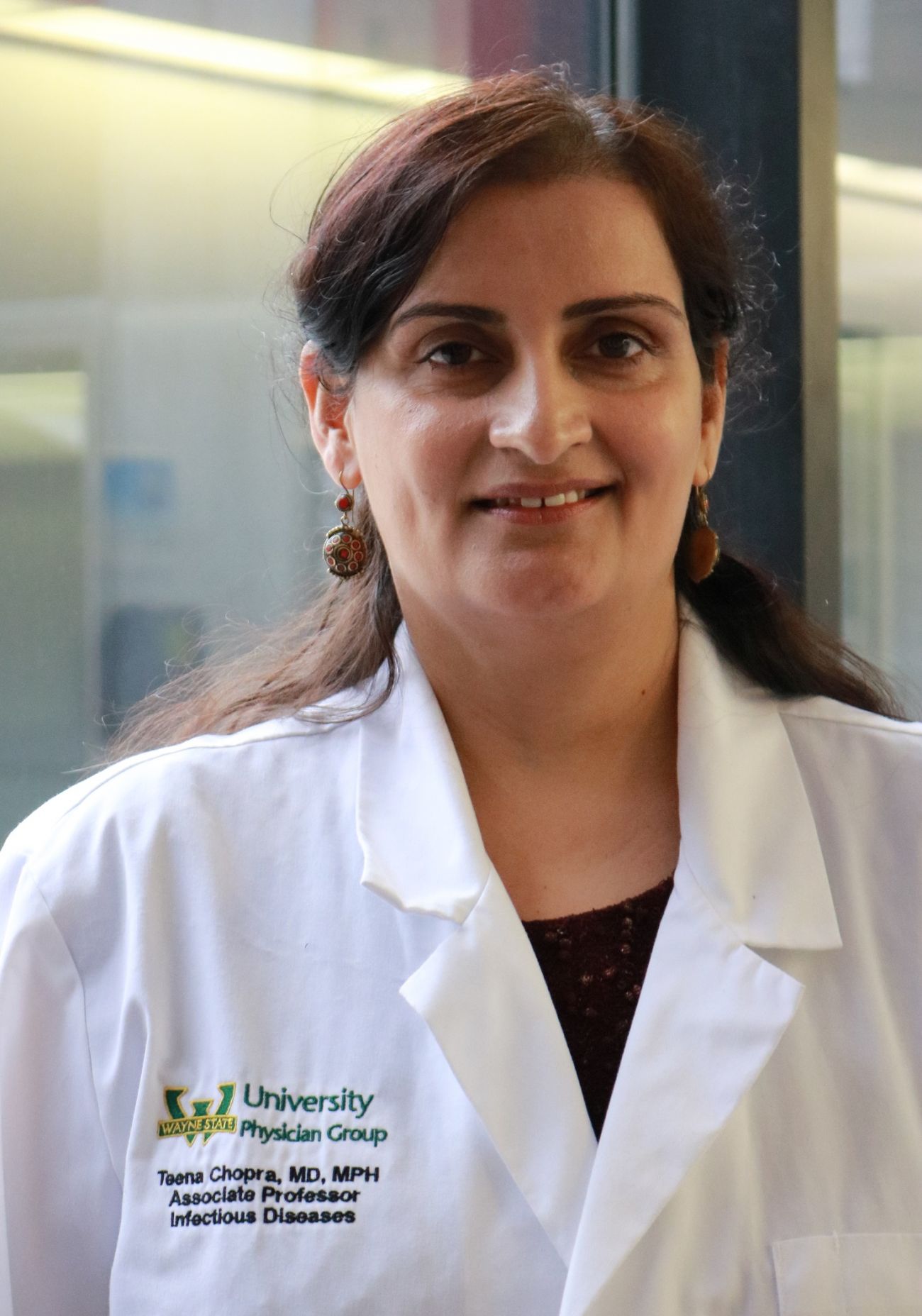An end in sight? Michigan experts say COVID finally ‘winding down’

Maybe — probably, but not definitely — the COVID-19 pandemic is finally coming to a close, according to those on the front lines of Michigan’s greatest public health battle in more than a century.
In Ingham County health officer Linda Vail’s view, the virus linked to 18,815 deaths in Michigan and more than 3.4 million worldwide or more appears to be “winding down.”
“We are getting to the point where public health needs to continue vaccine outreach in the communities and we're going to be dealing with clusters of small outbreaks — things like that,” said Vail, who like others in public health spent much of the past year taking angry phone calls and reading hate-filled emails reacting to orders that ranged from masks and curfews to crowd and capacity limits.
Related stories:
- ‘A really good day for business’ as Michigan acts to lift COVID limits
- Gov. Gretchen Whitmer: All COVID restrictions to end in Michigan on July 1
- Questions, answers about Michigan’s changing COVID restrictions
Vail was among several health officials to express optimism Thursday following Gov. Gretchen Whitmer’s announcement that the state’s last pandemic restrictions will dissolve in the coming weeks — marking a dramatic turn in Michigan’s year-plus battle.
But Vail, like others, including the governor herself, attached caveats to their mostly positive outlooks.
“(W)e are going to hope that we can do such a good job vaccinating this summer that we don't have a huge surge in the fall,” Vail told Bridge Michigan.
Derel Glashower, senior epidemiologist with Ottawa County Health Department, said he also is optimistic by what he calls a “changing landscape.”

“We have reason to hope and to believe that the rollback of some of our mitigation strategies are a reasonable approach,” he said.
Glashower and Vail spent the pandemic with a front row seat to misery. They studied data and dashboards as a new, highly contagious and deadly virus sickened and killed, overwhelmed hospitals, hobbled the economy, taught the country about concepts such as “herd immunity,” and turned everyday routines upside-down.
Public health officials have learned not to make hard promises about the future.
“If there’s one thing the pandemic has taught us, it’s that it’s unpredictable,” said Nick Derusha, president of the Michigan Association of Local Public Health, which represents the state’s 45 local health departments.
Still, there’s mounting evidence that Michigan is entering a new and more stable phase:
- In the past week the state is averaging just over 1,300 new cases a day. That’s more than half the 2,800-a-day average from two weeks ago.
- The state also reports a steep drop in hospitalizations and the percent of coronavirus tests coming back positive.
- Epidemiologists say the apparent seasonal nature of the coronavirus will further tamp down the virus, with cases falling quickly in warmer spring days as people gather outdoors more frequently. Last year, before any vaccines were available, Michigan cases fell to just a couple hundred a day through most of June, July and August.
- More than 57 percent of Michiganders have at least one dose of a COVID vaccine, with more than two in five being fully vaccinated.
- And 860,000 people have been confirmed to have contracted and survived COVID-19, giving them some natural level of immunity if they haven’t had the vaccine. It’s unclear how long that immunity lasts, however, to block the virus’ transmission.
Dr. Teena Chopra, an infectious disease doctor and professor at Wayne State University, was among the first to see Detroit area patients die as the pandemic bore down on southeast Michigan last spring.

She was in “utter disbelief” at the third wave that hit the state earlier this year, and it’s only been in recent weeks that she has felt able to breathe again, she said.
“You know, it depends how we define an end” to the pandemic, Chopra said. “I define the end as the uncoupling of case rates and the mortality rates.”
In other words, both deaths and case rates are falling as vaccine coverage increases. But death rates are on a far steeper decline — indicating that “break-through” cases among the vaccinated are far less severe.
“I think we can hope now, because the vaccines are so very, very effective,” she said. Chopra and other medical professionals have repeatedly noted in recent weeks that the lion’s share of hospitalized patients are those who have not been vaccinated.
That the vaccines “work like a charm” has brought around a quicker end to the pandemic, she said.
Others say lifting of remaining pandemic restrictions, such as the need to wear a mask if you’ve been fully vaccinated, may drive the end even closer.
University of Michigan epidemiologist Aubree Gordon told Bridge Michigan earlier this week that lifting restrictions “feels a bit early to me,” but a less-masked public might drive more people to get vaccinated.
It won't change the minds of those adamantly opposed to a vaccine. But for some of the unvaccinated, a largely-unmasked public may be worrisome enough to nudge them to get a shot. For others, it will be a matter of simply following the rules: Masks are to come off in public only when a person is fully vaccinated.
And that may be part of the calculus for lifting restrictions, she noted — a carrot rather than a stick.
“We don't want people to have to put interventions into place that aren't really necessary,” Gordon said. “There's kind of a little bit of a careful balancing act there.”
Another University of Michigan epidemiologist, Joe Eisenberg, said he would have preferred to see a slower loosening of restrictions — perhaps starting with outdoor rules. But he also noted “social and political” realities faced by elected officials and the “fatigue” over restrictions.
Public health, after all, often works best in collaborative (rather than prescriptive) efforts with residents.
But the road ahead is still likely to be bumpy as residents attempt to return to routines at their own pace. In her announcement Thursday from Midland, Whitmer asked people for patience and empathy.
“I'm asking that people extend one another a little bit of grace as we return to normal,” she said. “We should recognize that everyone processes change at different speeds and in different ways, and so for the next few weeks and possibly months, some Michiganders will feel safer with a mask, even if they've been vaccinated and that's okay.
“Other Michiganders, who may have been vaccinated, are ready to go mask free and that's okay, too,” Whitmer said. “Either way, there should be no shaming or guilt tripping.”
Fully vaccinated, Derusha at MALPH said he still wears a mask on errands, despite CDC guidance that fully vaccinated residents, in most cases, can go without.
Businesses are still sorting through workplace rules and trying to do right by their staff and patrons. As they work through policies, continuing to mask up is about respect, Derusha said.
Glashower, a father of three young children, wears his mask as well, though he, too, is fully vaccinated.
“I’m not afraid of COVID-19. Personally, I’m fairly healthy and young, and I can take sick leave. But I have little kids who are younger than 12 and they can’t be vaccinated,” he said. “I put it on out of solidarity with my kids.”
As for an official end to the pandemic, don’t expect confetti, or a “mission accomplished” moment, health experts said.
With vaccination rates stalling out well below the 70 percent threshold, many health officials have concluded COVID-19 will never disappear altogether. Rather, it will be controlled with routine vaccinations that will morph each year to fight new variants — a “slow burn,” as Glashower put it.
Glashower said he remembers his cell phone pinging him the night Whitmer announced that schools would close down more than a year ago.
“She texted me a bunch of question marks. I said ‘I don’t have any words for this.’ No one had experienced anything like this,” he recalled. “It feels like you’re in a gap and you don’t have the answers.”
Among the chief lessons of the past year include this, he said: Those uncertainties may never quite disappear.
“There’s not going to be a nice tidy bow that says ‘This is the end of the pandemic.’”
Bridge data reporter Mike Wilkinson contributed to this report.
See what new members are saying about why they donated to Bridge Michigan:
- “In order for this information to be accurate and unbiased it must be underwritten by its readers, not by special interests.” - Larry S.
- “Not many other media sources report on the topics Bridge does.” - Susan B.
- “Your journalism is outstanding and rare these days.” - Mark S.
If you want to ensure the future of nonpartisan, nonprofit Michigan journalism, please become a member today. You, too, will be asked why you donated and maybe we'll feature your quote next time!







